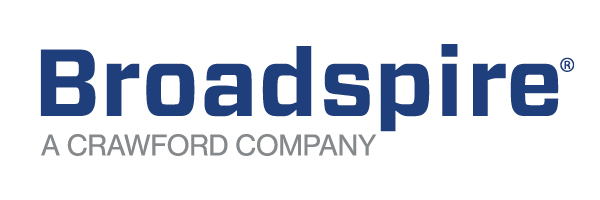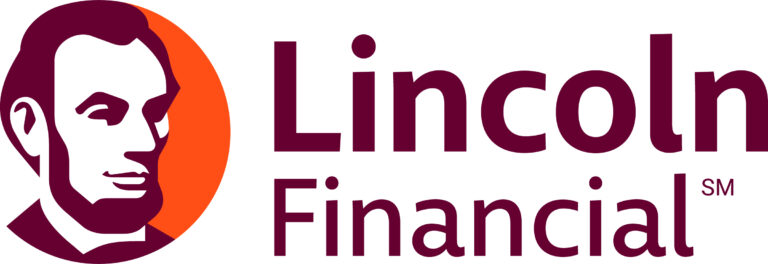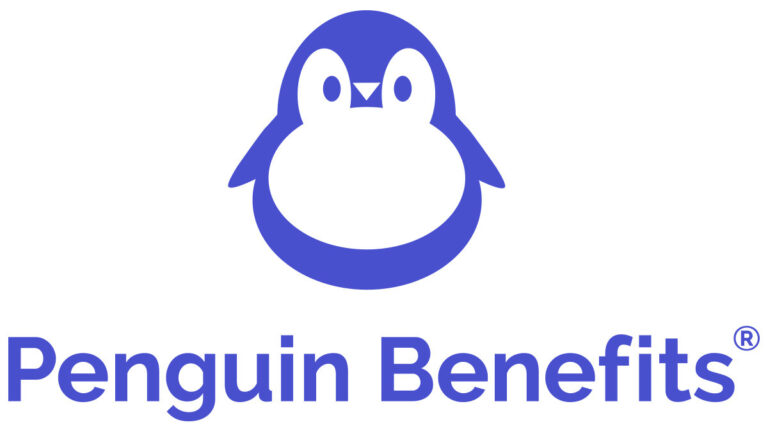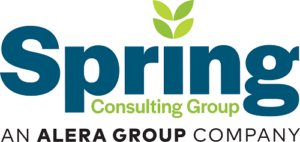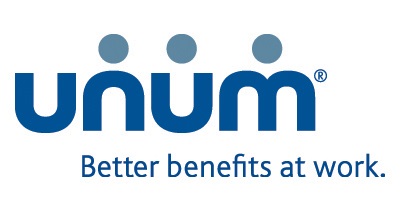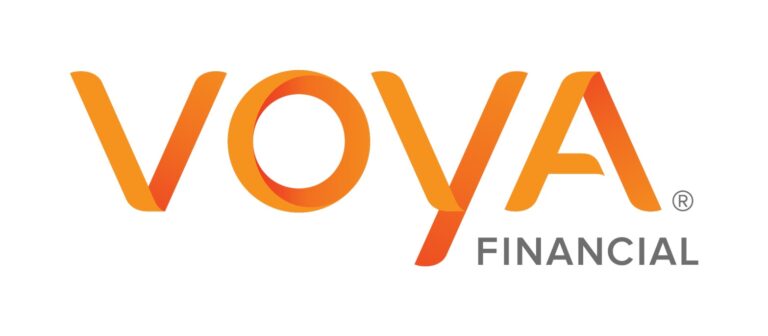Strong absence and disability management processes empower employers and help support employees during emotional times, explains Rachel Shaw, president/principal consultant, Shaw HR Consulting. Data can provide a life vest during emotional discussions when employees seek accommodations for disabilities and performance issues muddy the waters.
DMEC resources mentioned during the podcast:
- At the Crossroads of Performance Management and Disability: Using the Right Tool for the Job
- DMECommunities, an online member networking and discussion platform
- DMEC Resources
Transcript
DMEC: Welcome to Absence Management Perspectives: A DMEC Podcast. The Disability Management Employer Coalition, or DMEC, as we're known by most people, provides focused education, knowledge and networking opportunities for absence and disability management professionals. DMEC has become a leading voice in the industry and represents more than 18,000 professionals from organizations of all sizes across the United States and Canada. This podcast series will focus on industry perspectives and provide the opportunity to delve more deeply into issues that affect DMEC members and the community as a whole. We're thrilled to have you with us and hope you'll visit us@dmec.org to get a full picture of what we have to offer, from webinars and publications to conferences, certifications, and much more. Let's get started and meet the people behind the processes.
Heather Grimshaw: Hi, we're glad you're listening. I'm Heather Grimshaw, Communications Manager for DMEC, and today we're talking about how employers should evaluate accommodation requests when there are disciplinary issues in the mix. We asked Rachel Shaw, president and principal consultant with Shaw HR Consulting, to join us for the discussion. Rachel is an expert on this topic and a popular DMEC speaker and author of articles in @Work magazine. Her most recent article is titled At the Crossroads of Performance Management and Disability: Using the Right Tool for the Job, which we will unlock for podcast listeners. And we'll share a link to the piece in the Notes section of this episode. So Rachel, to get us started, it sounds like the ability to separate the need to take disciplinary action and accommodate an individual who has a disability is an ongoing challenge for integrated absence and disability managers. In your opinion, what are the top two reasons why?
Rachel Shaw: Great question. So when someone says, “Hey, my disability made me do it,” there's really two things that I think can be a challenge or cause that request to be more challenging. The first is kind of the timing of the request, right? So did this happen after a year of performance management or progressive discipline? Or is this request, this information saying, hey, I have a disability that's impacting my ability to meet your expectations, did that come out at the beginning of discussions? And so, depending on the timing, sometimes that can lead to either the employer feeling like it's too late, or the employer feeling perhaps discouraged or even skeptical, if that could be a legitimate claim. The second, of course, that's probably even more than timing. The most difficult is the relationship that exists between the employee and the supervisor. So I don't care how good you are as an absence and disability manager. If you have an employee and their supervisor with a difficult relationship, a bad relationship, a lack of trust, a lack of respect for each other, that is going to be so much harder. Because you're going to come into that request with emotions or feelings and vice versa. We find that if the relationship is very strong between the employee and the supervisor. You may never even know that there was a disability request made because the supervisor and employee try to work it out themselves, whether that's a good or bad thing. So I would say those are the two things, timing and then of course that relationship piece that can make these requests or information sharing make it very emotional for an employer.
Heather Grimshaw: Those are great points and I think that emotion seems to play such a big part in this. So I'm curious, have you seen an employer separate these issues successfully? And if so, how did they do it?
Rachel Shaw: I have. I will say it's hard. I always say I start with the first thing an employer, a disability absence manager or even a supervisor needs to do. In my opinion, humble opinion, is they need to acknowledge their feelings when someone says my disability made me do it. If there is frustration or disbelief or belief, acknowledge what you're feeling because feelings can often get in the way of doing the work we need to do. So it's okay to have feelings, to have a response. It's okay if there is an immediate reaction in terms of whether or not that is a legitimate request, acknowledge it. But don't act on them. Acknowledge them so that they're there and you give them space and then get into good process. What is going to save an employer and ensure that an employer not only makes the right decisions to protect disabled employees, but also to protect the bottom line of the organization is using strong process to analyze the request to determine is there an underlining disability that's covered under the ADA, that entitles this person to job accommodations. Did their disability in fact cause them to not meet performance expectations? And if so, what are those restrictions? And are those restrictions able to be accommodated so the person can then be successful? When we talk to an employer, we say acknowledge that there's feelings and emotions, but realize that you're going to use good process and at the end of the day, there is no get out of jail free card. Disabled people aren't asking and if they are, they're wrong, but they're not asking. Lower performance standards, lower production standards, lower your expectations for what I'm going to do. No, what we're looking for is if someone is a poor performer or not doing what they need to do. Discipline or performance management is the tool to help them meet performance expectations. A disabled person isn't going to get better because you write them up or give them more training if the disability is why they're not performing. We look for using an interactive process and an accommodation as the tool that will then help that person meet performance standards. So all roads, whether it's discipline or the disability interactive process, all roads lead to successful performance. And so that's really the goal and that's the focus point. But you use process to get you there.
Heather Grimshaw: That's really helpful. That process piece as the way to separate or maybe buffer some of the emotionally charged discussions. So in your recent At Work magazine article, you talk about times when hearing about an employee's disability provides managers with and I'm using air quotes here a missing link for performance issues. And I'm wondering how much of this issue is related to an employer's ability to encourage employees to share disabilities and request accommodations before their performance is influenced by a disability.
Rachel Shaw: Boy, that would be kind of the dream, right? The dream would be that there's this knowledge so that from day one we use the right tool, right? From day one we know is this performance issue, this attendance issue, can it be addressed through performance management or progressive discipline? Or do we need to use a disability interactive process to explore reasonable accommodations? That would be ideal. What I would say is that the challenge sometimes, or what I often will look at is when someone says, again, my disability made me do it. That missing link is part of what I say. There's kind of three traditional responses that an employer has, right? An employee says, hey, I'm not meeting your performance, attendance, or safety standards because of a disability. And for some employers, it's like they say, AHA, oh, I get it's. The missing link, I get it. That explains everything. Got it. Okay, let's use the right tool. And they're immediately focused and refocused on using the disability interactive process to find the accommodation that will help that person be successful. For some employers, when an employee says that, their response is they had no idea, right? They're like what? Where is this coming from? Right? And then for some employers, when someone says that, I call it the eye roll, right? And if you could see me, you'd see my I just demonstrated an amazing eye roll for you. But the idea is that it's so complicated because, yes, ideally it would be amazing if an employee could say to an employer, hey, I'm not doing what I need to do because I've got this thing. And it's not about retraining. It's not about reminding me. It's not about making me realize I have to prioritize performing well. It's this medical thing. And I think the challenge and why this is never going to be easy or easier even with amazing process is because sometimes employees will say, my disability made me do it because it's true. And sometimes employees will say, my disability made me do it, and it's partially true. And sometimes when they say it, it's not true at all. And so, again, it's very hard because sometimes the reason that an employee doesn't disclose it from the very beginning is employers didn't explain, they didn't train employees, hey, if you need help, sometimes the reason employees don't disclose it from day one is because it wasn't true and it's still not true. And sometimes it's much more complicated. Sometimes you have employees that even if you had perfect process and you explain to employees we're here. And even if you are an employer who deserves to be trusted, where you have always shown employees that we will protect your medical privacy and we will find a reasonable accommodation, even if you are the most amazing employer in the whole world. Sometimes employees are so private and so confidential that they will not tell you they have a disability unless they are literally looking down the hallway of a termination. And so it is just so complicated. And so what I tell employers is as kind of we talked about earlier, right? Number one, acknowledge your feelings. And number two, use good process. Whether you have AHA or you're rolling your eyes because someone says it, we need to acknowledge whether we think there's legitimacy here or not. But leave a space in your mind or your heart or your process for the possibility that this could be actually what is that missing link? Because discipline is not to terminate. We do not discipline employees to terminate. And if we think that we need to kind of remember that's not true, we discipline employees so that we can support them to meet performance expectations and succeed. And so we shouldn't care what tool we have to use. We shouldn't care if it's discipline or if it's the disability interactive process, if it's the right tool and it helps the person succeed. And so again, it's that idea of sometimes supervisors and managers come to this process and they're like, oh my gosh, this makes so much sense. Thank you. I'd like to make sure know now that I'm turning this over to our absence and disability, hey, this is great, can you please help me find a solution because I want Sally to succeed. And sometimes supervisors get frustrated because they were hoping this discipline was going to end up in termination. And so it's very important that your absence manager understands my job is to use the right tool to support this person to meet performance expectations, whether it's discipline or disability interactive process, that's the goal. And so that's what I would just say is have a space open in your mind or your heart. And it's part of that whole good faith obligation that we as really intended to be objective absence and disability managers, where there's a piece of our brain that even if we think this person may be not in need of accommodation, maybe they're using it as an excuse or a weapon against holding them accountable for performance. Make sure there's a space that you leave in your brain that maybe, just maybe, we've been using the wrong tool. And maybe, just maybe, if it is a disability and we find a reasonable accommodation and we implement it, maybe we can help this person meet performance expectations or attendance expectations, or safety needs. And that really is the goal of any process we utilize.
Heather Grimshaw: You made a differentiation there that I'm hoping you'll elaborate on a little — the difference or delineation about when a manager's role ends and an absence in disability manager's role begins when addressing these kinds of issues with employees.
Rachel Shaw: Yeah. So technically the disability interactive process is a human resources function. And so from a technical education, training, and skill level, we absolutely want to get that request, that request for accommodation out of the supervisor's role and over to your HR role because of just a basic skill set. So there's just the idea, I don't have a clue what a manager who manages employees in the field, I don't know what they do. That's not my specialty. I don't have skills in that area. That's their job. And equally, we don't ask our frontline managers and supervisors, we don't ask them to be proficient on the ADA and the interactive process and what is timely and what is good faith. And so we want to get that over. So usually when managers are triggered that someone is saying, hey, I need an accommodation, whether they're saying it explicitly or they're using language that makes it sound like performance, attendance or safety is being impacted by a medical or psychological thing that should be transferred over to your disability and absence managers. It's not just though a technical reason that that is in place. I also want to just acknowledge that it is harder to separate the emotion, the feelings, right, the assumptions that are being made. It is harder to do that when you are a direct line supervisor and you are directly impacted than when you are really hired in the employer to be sort of that objective HR person. So there's not only a training component and a skill based component in terms of why once someone says I have a medical condition or there's a perception that a medical condition is at play and impacting performance, that needs to be transferred over because again, that's the skill set of your HR team. But it is much more difficult and sometimes those emotions or feelings or beliefs can cause us to not engage in good process. And so again, acknowledging your feelings about it, but getting it over to someone where hopefully HR doesn't have those same feelings and emotions because they're looking at it more of a database and more of an objective way. So that is why if the supervisor or manager is using their toolbox, which is performance management, discipline, retraining, counseling, all those things are in the supervisor's toolbox. But the minute an employee either hints or says explicitly, hey, I've got something medically psychologically going on and that's why I'm not meeting your expectations, once that happens, the supervisor should pause whatever performance management tool they're using and immediately get that over to their disability and absence manager for assistance in management of that issue.
Heather Grimshaw: I like that. That's a really clear sort of demarcation point and it's my understanding that it's a small percentage of employees who abuse the leave system. Yet these issues can be painful. That's a word that you used in your recent article. So I'm hoping you'll talk a little bit more about why.
Rachel Shaw: Sure. Leave is probably one of our most difficult things to manage or accommodate in the workplace. Technically, leave is a failed accommodation because leave means there was nothing we could do to help you work. Right. Sometimes the only thing that person can have is time away from work. That is hard for an employer because when you're not there, there is something that cannot be done. And in my world, I sort of break leave use into three different areas. Number one, employees who are medically absolutely 100% in need of leave. There's no alternative. They need it. It's legitimate. Number two, employees who the amount of leave they're taking, they need some of it. They definitely have something medically going on and they need some of it. But maybe there's other things going on or maybe their life is a little bit of a mess too and so there's leave for that. But it's all kind of in this category of disability leave, there's definitely a need, but maybe they're taking more than they might technically need. Or sometimes the reason they call out for leave might be suspect. But there is some belief there's some need for leave. And then the third category is really those employees who just are stealing from you. They don't need it, they're not sick, they're not disabled, they just don't want to be at work and they want to use sick leave or they want to be off those three categories. There are so few people in that third category. In most employee years there are some and they get a lot of our emotion and attention and they definitely do rile some of those feelings that HR absence managers have. Right? But it's smallest group. And what I always remind employers is make sure that you're not treating all three categories the way that you might be feeling about that last category where people just are taking what they don't need. And so it is painful because when there is leave usage, we sort of have to get to that point of what are you feeling, what is your supervisors or managers? Is there frustration? And then you've got to use a process to gather data to find out, I mean, what is it? Are they so disabled that they can't medically maintain regular and reliable attendance and so that will be managed in one way, is there some leave needed? But you use the interactive process to find out maybe 20 30% of this, you don't need to be off and so we want to get you back and working more. And then of course, you're going to use a solid process because if you think someone doesn't need leave and you think they're stealing from you. You have to prove you're right if you're going to manage it. And so it is painful because it requires a consistent process and you're not allowed to use past information. You're not allowed to guess. I have never met someone who is clairvoyant or psychic and if you are, please call me. I'll hire you immediately. We have assumptions, we have beliefs, we may be right, we may be right that that person is stealing or misusing leave. But you have to use process to prove your assumptions and you have to, again, leave a piece of your mind or your heart open, that maybe there is a missing link and maybe there is an accommodation that could minimize the leave. If the leave is reasonable, if you have to provide it because it's statutory like FMLA, then you don't get to have emotions about it. If the leave is in excess of statutory or contractual leaves or organizational leaves and if it's medically needed, you'll go through the interactive process. You'll gather data using a standard process. And if the leave truly is not reasonable and there are criteria under the ADA that lets an employer evaluate is it reasonable? And if it's not, there are options for you as an employer to manage that person into an alternative part time, as needed work or even retirement. But again, the goal of this process is to say, okay, we need you here. How do we help you be here more? The goal of the interactive process isn't we want to get rid of someone who's too disabled or claiming they're too disabled to work. So again, it's painful because it is so impactful and it's painful because we don't often find alternatives, someone's either at work or not at work. But we want to use a standard process, acknowledge our feelings, but use a standard process to really find out do they really need this much leave? And if so, is it reasonable? Or could we support them to take less leave if we implement alternative accommodations or if we help them better understand that they don't need all this leave and they're going to be held accountable to better attendance? Or if they're truly stealing from us, we're going to use process to find that out and we'll deal with it through the interactive process.
Heather Grimshaw: It's a really powerful statement to say you need to use process to prove your assumptions. And I think again, it kind of hopefully helps people separate that emotion from the next step. So as you said, acknowledge it and then move on. Which leads me to my next question, which is what is the best way for absence and disability managers to manage these emotionally trying situations? It does seem like these are folks who are so close, all of this is so close to them and they want to do what's best for the employee and the employer. And it seems to take a pretty big emotional toll.
Rachel Shaw: It does. My joke is get a therapist or drink or eat, which is probably not, I don't really mean that. But I will say one of the things I like so much about DMEC and the conferences and the network that I've built and that other people who are members built is you cannot do this alone. I am a member of a 25-member team and I go into my colleagues office or I will call them and I will brainstorm. And if I'm feeling that my feelings are too big for that or my process is more difficult to do, I will use my team to help me give that perspective. When you are in it, whether it is your employee or whether it is your employer, whether it is part of your team, it is sometimes harder on certain circumstances to be objective or to get those feelings a little bit pushed away and focus on process. And so, the first thing I think is you need a network. You need a network of people who understand. Because I don't know about you, Heather, but I can't go home and talk to my partner about what is going on at work. He will not understand. It just doesn't compute. He doesn't have an understanding and he can say I understand, but he doesn't. But I can call any of my HR folk and I can give a brief scenario and we're like, they understand me and they're there. And oftentimes what we need to do for each other is acknowledge the difficultness of it and be reminded of why we do this work. What I do with my team at least once a month is I pull us all together and I say and I remind, I say, you guys, let's remember why we do this. We do this because there is a population of disabled employees that either need leave or need workplace accommodations. And if we didn't exist, they would not have access to employment or they would be terminated from employment. We are the reason that they have the opportunity to participate in work in an equal way. As nondisabled people, we are not making the world better for them, giving them better. We are simply giving them equal access to the benefits and the burdens of employment. And we focus on that. Because the reality is and I am such an optimist at heart but I will say that if all I was dealing with every single day were people who only missed work because they medically couldn't or they had prescheduled vacation. If I was only dealing with people who were asking for workplace accommodations that were absolutely aligned and linked to their limitations that are produced by their disability, I would probably be working part time. There's so much within our day-to-day work in absence and disability management that is messy and requests that maybe aren't fully medically needed, or maybe the person thinks they need it, but they may not need it. People who do need a little bit of leave but they take a lot of it. And what is so hard about this work is that it can really drag you down when you're dealing with people whose full-time job it is to steal from you, even though that's such a small port of it. When you're dealing with people who may use at least in your opinion, and you may be right or wrong, might be using the Disability interactive process as a weapon against their supervisor, holding them accountable to performance and attendance. Standards, as opposed to someone who just is saying to you, please, employer, help me remove barriers so I can equally compete as nondisabled people, so I can have a fair opportunity at employment. It is hard. And so you have to remember that you're going to have to go through and manage some of that more difficult part of it so that you can absolutely do something that not everyone gets to do in their job, which is you're going to save people's lives literally. You need work, you need medical benefits, you need purpose in life and we are helping facilitate that for people who cannot do it without our help. But you got to remember that and you have to make sure that you say, look, I know that there's people that I'm going to deal with that may need this less or may not even need it at all, but I don't get to decide who those people are. I use process and my process is going to ensure that most of the time not perfect, but good process is going to ensure that. I am finding that, yes, for those people that these laws were intended to protect and I am helping ensure that this organization and these supervisors support them to participate in the workplace like a nondisabled person can. And I'm using really good process to stop people from taking accommodations and leave they don't need as much as possible so that there is space for those people that do need it. And so that's what we have to just kind of keep reminding and we need to help each other. And I always get so excited after a DMEC conference because I come back and I'm so excited and invigorated because I'm remembering. And then I get six months away and I'm starting to feel a little bit demoralized or beaten down or frustrated. And then I call my friends, I call my absence and disability management friends, and we remind each other, and I go to my team. And so that's what I would encourage everyone to do, is remember how important you are and have people around you that can help you when you need someone to either remind you or help you gain perspective or help you push those feelings aside so that you can get back to good process.
Heather Grimshaw: I'm glad you mentioned the power of network. I think that I see a lot of messages on the DMECommunities from members who are seeking that kind of support. And do you see this? What have you done in these situations? For anyone who's not familiar with the DMEC communities, it's an online network for DMEC members because a lot of times disability and absence managers work alone or they work in small teams. So I think that it is key — that network and that ability to remind yourself how important and valuable this work is. So thank you so much for that reminder and these great tips and tools that you've shared.
Rachel Shaw: Thank you, Heather, it's been wonderful talking with you. And I hope that this is helpful for anyone out there listening.



